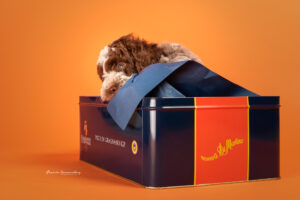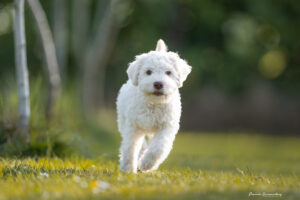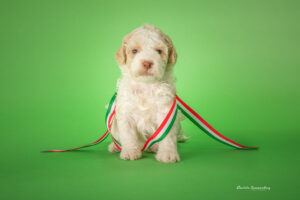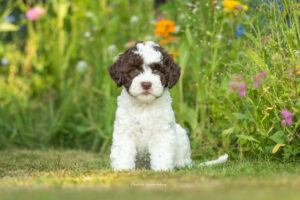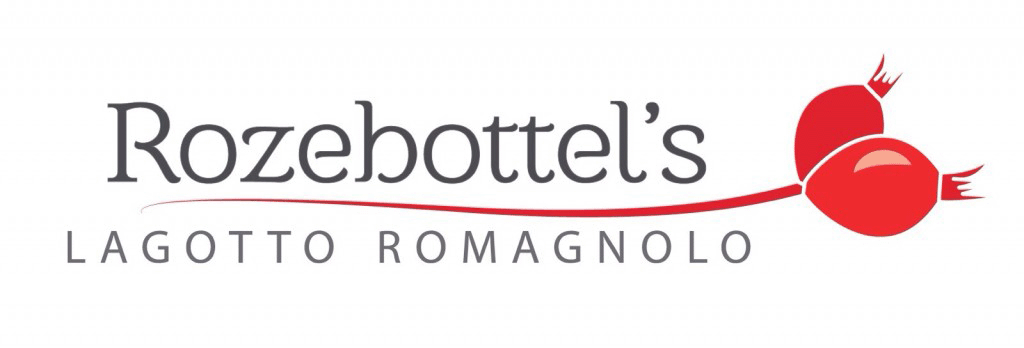First week
The puppies are born. The first week is filled with drinking and sleeping. The mother helps the puppies defecate and urinate, which they cannot do very well yet without help. The puppies cannot yet see or hear. This phase is also called the vegetative or neonatal phase.
They also have to learn to walk. After three days, we start a neurostimulation programme, which will help puppies cope better with stressful situations. In these first three weeks, this programme consists mainly of an introduction to stimuli registered by the body. For example, stroking by human hands (head, soles of feet, etc) and holding the puppy. Cuddling, in other words!
Second week
This is referred to as a transitional phase. The puppies prepare themselves physically and mentally for an external introduction to the world. The eyes open after about 9 days, the ears also open now and the puppies can see and hear. At the end of the second week, the puppies get their first deworming and their nails are clipped.
Third week
In the third week, the start of the primary socialisation phase (which lasts until the 12th week), the whelping box is buzzing with activity, the puppies 'walking' around and practising various motor skills. Walking gets better and better, they sit down and play with each other. A first introduction to toys is also deliberately offered during this week. In fact, this phase is also known as the imprinting phase and is essential for the pup's future development.
It is important to introduce puppies to different materials at this age. We therefore alternate soft and hard materials. Meanwhile, they have also started eating soft food (soaked puppy chunks) and drinking water. The toilet training has also started. The puppies gradually learn how to keep the litter clean, which is very important for successful house training with the new owner.
Fourth week
It is time for deworming again. Furthermore, the nails are clipped again and the hairs around the anus are cut for the first time. This way, the puppies learn early on that human hands are no threat and that grooming is just part of the job. Meanwhile, weather permitting, they have already been outside. The puppies play with each other.
Fifth week
Meanwhile, the puppies eat hard kibble. They alternate playing, learning and sleeping. They get to know the other animals more and more consciously. Sometimes the chipper from the Raad van Beheer comes already in this week, all puppies get a chip with their own unique code and some cheek swabs are taken for the parentage DNA test. This permanently links them to their pedigree name.
Sixth week
In the sixth week, the puppies get their first vaccination; we go to the vet by car for this. They will also get deworming again this week, but a different product than last time. Weather permitting, the puppies go outside every day. By now, most of the puppies are well house-trained on the grass mats we use for this.
Seventh week
Days consist of eating, playing, sleeping and experiencing. Still every day they discover new things. All play equipment is used a lot. Not only to play with them, but also to bite into them. This is because puppies still learn to discover toys with different materials best by biting into them. When the weather is nice, the puppies also play in a small pool. The puppies leave for their new homes, ready to discover the rest of the world.
